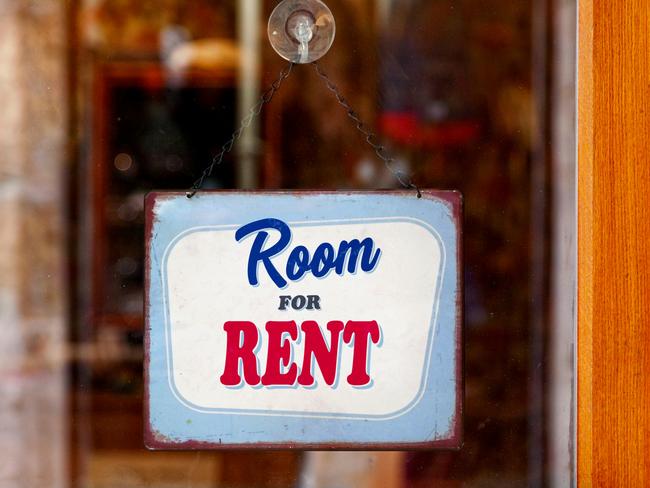Landlords can evict tenants who fail to pay COVID-19 rent under new emergency rental laws
Queensland tenants still risk eviction for failing to pay renegotiated rates during the coronavirus, it has been revealed. Housing Minister Mick de Brenni answers the pressing questions about the new COVID-19 tenancy laws.

QLD News
Don't miss out on the headlines from QLD News. Followed categories will be added to My News.
TENANTS on rent strikes can be kicked out of their homes despite the COVID-19 eviction freeze, under the state government’s emergency rental laws.
A State Government spokeswoman said today that “tenants cannot simply stop paying rent’’.
“Tenants who have been impacted by COVID-19 must renegotiate their lease agreement with their property owner,’’ she said.
“Any negotiated agreement will form part of a tenancy agreement, meaning breaches are able to be managed under the normal breach process.’’
The “normal breach process’’ lets landlords evict tenants over the failure to pay rent, and take unpaid rent from bond money.
The spokeswoman said that tenants and landlords who fail to agree to COVID-19 rent reductions or repayments can seek free conciliation through the Residential Tenancies Authority (RTA).
If they still fail to agree, either party can apply for a binding determination by the Queensland Civil and Administrative Tribunal (QCAT).

The Palaszczuk government rushed emergency tenancy laws through state parliament on Wednesday night, to ban landlords from evicting tenants who cannot pay their rent due to COVID-19 illness, quarantine or job losses.
The legislation, backdated to March 29, will freeze COVID-19 related evictions until September 30.
Guidelines issued by state Housing Minister Mick de Brenni state that tenants must prove they have lost 25 per cent of their post-tax income, or are in hardship from paying more than 30 per cent of their income on rent.

Income includes any Centrelink payments such as JobSeeker or JobKeeper payments, or rental assistance.
Regardless of COVID-19, landlords can give any tenant two months’ notice to move out if the home is to be sold, or the property owner or an immediate family member wants to move in.
Tenants who have lost 75 per cent of their income, or are suffering domestic violence, can break a lease and move out immediately by paying a penalty capped at one week’s rent.
The government spokeswoman said COVID-19 conciliation was being treated “as a matter of urgency’’.
But the RTA website warns that “due to the ongoing coronavirus pandemic, the RTA is currently experiencing longer wait times across our customer and support services’’.
The Sunday Mail asked Housing Minister Mick de Brenni how the new scheme will work, with responses from a state government spokeswoman:
- What happens if a tenant or landlord breaches the terms of any new agreement negotiated as a result of COVID-19? For example, the usual rent is $1000 and the new agreement is to halve rent to $500, backdated to March 29. The tenant then fails to backpay the rent or pay any ongoing rent. Can the tenant be evicted for non-payment of rent, pursued for unpaid debt, and listed on a tenancy database?
Under the changes, any negotiated agreement form part of a tenancy agreement, meaning breaches are able to be managed under the normal breach processes.
- What happens if the landlord and tenant can't reach agreement?
If agreement can’t be reached through mandatory conciliation, the party that made the original request can progress the matter for a QCAT hearing. QCAT determinations are legally binding.
- Is there a time limit for dispute resolution to avoid one party dragging things out?
COVID-19 conciliation is being treated as a matter of urgency and will be progressed as quickly as possible and any negotiated agreement will form part of a tenancy agreement.
- If a tenant has not paid any rent since March 29, must this rent be backpaid?
Tenants cannot simply stop paying rent as that breaches their lease agreement. Tenants who have been impacted by COVID-19 must renegotiate their lease agreement with their property owner. Any negotiated agreement will form part of a tenancy agreement, meaning breaches are able to be managed under the normal breach processes. If agreement still can’t be reached through this process, the matter can proceed for a hearing before QCAT. QCAT determinations are legally binding.
- Can unpaid rent be taken out of a tenant's bond money?
As part of RTA conciliation, parties may agree to use bond money to pay and outstanding rent. Conciliation will be progressed as quickly as possible and any negotiated agreement will form part of a tenancy agreement, meaning breaches are able to be managed under the normal breach processes. If agreement still can’t be reached through this process, the matter can proceed for a hearing before QCAT. QCAT determinations are legally binding.



